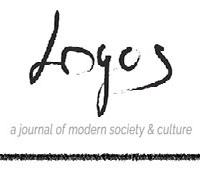Two Poems
WCW BLUES
Sexual lust may weaken me
but I’ve always come back
to my senses
Sweet Free Emotion
no one is corny
here Sister, Brother
It permeates!
It melds and it
coats and immerses
It entwines
and conceives
It is gestating
It is birthing!
It’s composing
It’s decomposing
It has become
One with
the language!
Young I felt
I felt It
I felt young
With the super special
extra souled tenacity
of beneficial madmen
That It, Yes It
would come easy
easy as sunrise
We’re not just talking
blessed by the Muse
here
We’re talking
All Out
Eternal Verse
We’re talking
The Best
The Best Ever
I didn’t want to quit
my day job
for a literary prize
at South Sophomore State
nor a token wild man be
at the Festival of Squares
When I wrote tragedy
It was earth shaking
It was Epic
You may have seen an oafish pretentious
unlearned freak
a trouble maker
A bombed comedian
a no literary value boor
with severe problems
Last night I tried to take a bottle of Rum
to the Clear Light
I am no longer possessed of an extra soul
Those tragedies and lonelinesses I romanticized
are real and pathetic
The entire reason I deal with the outward show
this Maya this supposed life
in front of me
The melodrama of art
The death in life
The purpose and cause
Is aching like a mother fucker
Now I know they really were against us
They had scorn and repugnance for the poor
They didn’t want their literature
open to the creole cultures
the underground metaphor
They really didn’t want the lower classes
to rise
Okay cartoonize, abstract, or use us
rise as an individual maybe
but as a class never
This must be the working class writer blues
This must be the working class blues
This must the working class
This must be the blues
INSIDE OTISVILLE
First in-class writing
at the correctional facility
(State Prison)
I see 11 men— 11 good men
How do I know they’re good?
How does anyone know—
I see the concertina wire, its cutting music
I can’t hear, only see
I see the mind of a heart
jump out of a hand
the dream not deferred
but exploding
a load lightened by a gram
an ounce a mote a speck
and the heavy load is carried by
a body that is not mine
any longer
a ghost carrying a cross
I dream refrigerators and big deep couches
and free dentists and the time I’ll be home
and her arms
I will not share— but somehow
that embrace that breath
living inside the breath
It will survive and enter the waters
I see the faces I’ve seen in the bars
the off track betting parlors
and littered parks, that I’ve seen
down in the rust and black smoke
down in the alligator warehouses
up again on that gold dust sidewalk
in the car next to me entering the Mid
Town Tunnel selling flowers, papers
at the Tri-Boro toll booth
The face on the working streets of South Ozone Park
that catch my eyes and turn away as do mine
I see a little stream of light with floating lint butterflies
and milky ways of insect fragments
A woman’s face in a piece of bread
a dead man’s last words in the grain
of the sidewalks
the grey and the dull
institutional green
What does that mean?
What is a mistake that is paid for?
What is the price society has set?
I’m not society—I don’t even like society
I want to live in the Future
freedom is another chance
freedom is a big black bird
over the rooftops
undaunted by the smoky grim spume
of strange industry
Evil is not human
Let me 12 years old again be
and I’ll show you a different world
destiny
Let me live That
I would give you how the moon
is high
How it is free to do whatever it wants
and the only sounds are
water air insects wind
the weeping leaves of grass
the laughing of machineless nights
A festival of sleep walking
a dream not a dream
Andy Clausen is the author of nine books of poetry, including 40th Century Man: Selected Verse 1996-1966 (Autonomedia, 1997), and Without Doubt (Zeitgeist Press, 1991, introduction by Allen Ginsberg). A coeditor of Poems for the Nation (Seven Stories Press, 2000), Clausen is a construction worker and teaches poetry in public schools and prisons in New York.

